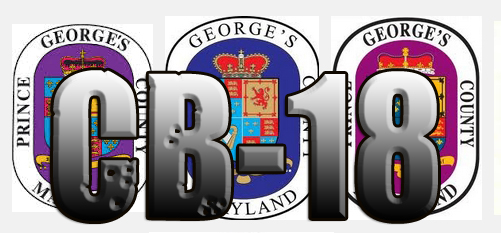
In 2011, Prince George’s County turned a little quieter when Karen Toles, Prince George’s County Council, filed an emergency law amending dance hall regulations in an effort to decrease violence in the county. It was quickly signed and affirmed by the Executive Council of District 7. While the law did not spotlight a particular music style or business owner, many smaller dance clubs have closed their doors since the bill passed.
On May 15, 2014, five residents of Prince George’s County filed a $10 million lawsuit against Toles and the Executive Council, citing the bill caused emotional stress, financial strain and traumatic indifference to convicted felons.
The court documents obtained by WPGC put the spotlight on District 7, stating they “deprived the black race… from exercising the freedom of expression through dance.” In the Footloose-esque lawsuit, plaintiffs Lafayeette Williamson, Brian Logan, Lou Smalls, Dan Richardson and James Rorie believe Toles pushed the bill through maliciously, in order to keep members of the black race from participating in an activity they claim was the only way of communication years ago.
Dan Richardson, one of the petitioners, was the owner of Plaza 23 Event Center. In early 2011, a man was shot to death in the parking lot of the hall after popular group TCB Band performed.
“[The black race’s] music was the only means of speech through this communication, yet this atrocious bill was introduced without the full knowledge and participation by any of the named petitioners,” the document reads. It also states the law was put into play without proper voting procedures by residents of Price George’s County.
It continues, “this bill maliciously introduced this malice… to demean [and] detract from the good standing in culture.”
Local business owners are upset at the issuance, claiming many have closed their doors due to new guidelines. More specifically, the go-go scene has taken a hit. Facebook pages begged council to overturn CB-18-2011 and a petition was starting stating business owners were not granted the correct tools to obtain licensing in a timely manner, pushing them to close their doors.
The original bill, signed on July 19, 2011, amended dance hall regulations in order to decrease violence in Prince George’s County. The stipulations of the bill said all dance hall owners must obtain a yearly license for $1,000 and devise a thorough security plan, three types of insurance as well as allow uniformed patrolmen to cascade the property as needed. The biggest stipulation stated any application will be denied if the person obtaining said license has been convicted of a felony.
Among the mandatory application necessities, the bill said license violations will occur if dancing continues between 2 and 11 a.m., if noise levels rise higher than 50dBA and if clubs allow unlawful activities to take place on their properties.
Eighteen days after the five Price George’s County residents filed the lawsuit, Tole filed a motion to dismiss the case citing failure to follow correct guidelines. In short, the petitioners failed to provide Tole with a summons properly, the first step all must take to file a lawsuit.
According to County Executive Rushern Baker, one of the co-signees of the original bill, violence has dropped 14 percent in homicides in 2013.
![]()

Subscribe to our eblast Newsletter and stay Up-To-Date and In-The-Know with the latest News, Events and Ticket Give-A-Ways!
